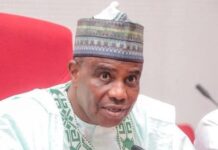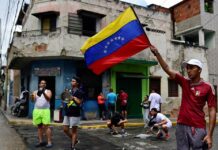Socioeconomic crisis in Nigeria exacerbated by unrealistic comparisons, by Abdullahi Buba
I want to briefly talk about my experience as a Nigerian living outside Nigeria, reflecting on a post I saw on social media by an unnamed fellow living in the U.S that attempted to compared life in Nigeria and the U.S. I also aim to explore why many public policies in Nigeria have not been successful in achieving their intended goals.
Firstly, allow me to address the misconceptions that some people have regarding Nigerians who advocate for better life-saving policies from successive governments. Such advocacy does not signify lack of patriotism, blind criticism of the incumbent government, or a negative view of the country. Instead, it often stems from a sense of patriotism, the hope that the government may adjust its policies, or an effort to peacefully oppose ineffective public policies in the country. Nigeria’s profuse natural resources should ideally prevent the current socioeconomic challenges bedevilling the country from persisting at such a high level. One key reason, in my view, for our ongoing struggles despite these resources is the unrealistic comparison of our public policy processes with our reality. Additionally, some Nigerians living abroad may inadvertently campaign for policies that are ill-suited to Nigeria’s unique circumstances due to their experiences in vastly different environments.
I wonder if the author of the earlier mentioned piece realizes that there is a country more suitable for comparison with Nigeria than the US. Life in this country is not only more fulfilling compared to the United States but also to Congo, despite the author’s claim that “aside from Congo, no citizens in the entire universe enjoy life to the fullest like Nigerians.” For example, in my current location, essential utilities like water, electricity, gas, and public transportation are practically free, with a combined monthly bill for these services (excluding public transportation) amounting to less than $1.5. Unsubsidized pump price costs around $0.06 (subsidized price is about $0.03), and there is a reliable public transport system (including BRT and Metro) operating from 6:30 to 21:00 daily at a cost of $0.024 per e-ticket. Additionally, this country has achieved food self-sufficiency, offers healthcare services at international standards with modern medical facilities, provides nearly free public education from primary to tertiary levels, allows local calls for one and a half hours at a rate of $0.18, and offers 10GB internet service for about $1. Moreover, citizens benefit from robust security measures, making it one of the countries with exceptional security infrastructure in the world.
The government of this country where I presently reside is committed to improving the lives of its citizens despite facing challenges and obstacles imposed by nations that have appointed themselves as superintendents of the internal affairs of other sovereign states. It might intrigue those with inquisitive minds to learn that despite significant pressure from the US and its allies, the country generated around $34 billion in oil revenue from January to September 2023, equivalent to Nigeria’s entire budget for the year 2024. The upcoming fiscal year’s budget for the country stands at $49.2 billion, with an estimated 0.6% of oil revenue’s contribution to the overall projected revenue earmarked to fund this budget for a population of approximately 90 million people. Despite being one of the countries with highly volatile exchange rates, with the local currency exchanging at about 550,000 per $1, the national minimum wage is around $200 per month with practical measures on ground to checkmate unnecessary general price fluctuations. Consequently, an employee could potentially save up to a one-third of their salary based on personal preferences, unlike in my home country where the national minimum wage may not cover an employee’s monthly transportation costs, along with expenses for water, electricity, and cooking fuel without provision for food and shelter as well as other essential services like education, health, and recreational needs.
In conclusion, the country where I currently reside can be considered one of the rapidly advancing nations, or even on par with developed countries globally, as evidenced by various development indicators. This progress is achieved by aligning their socioeconomic policies with their cultural, historical, political and existing economic realities. It’s worth noting that all developmental strides and public projects in this country for the past 45 years are funded without zero public borrowing, unlike our situation where projected debt servicing accounts for 45% of the anticipated total revenue for the current fiscal year. Thus, for us to become one of the fastest growing economies not only in Africa but worldwide, we need to align our public policies and perspectives with our cultural, historical, political, and socioeconomic veracities. We should avoid hastily formulating and implementing policies solely based on recommendations from self-serving superpowers in the Western world. Only then can life become more meaningful for Nigerians, and the ruling class may garner unprecedented public support akin to their counterparts in Iran.
Abdullahi Buba is a PG Student at Ferdowsi University of Mashhad (FUM). He can be reached via abdul.buba@outlook.com
Follow the Neptune Prime channel on WhatsApp:
Do you have breaking news, interview request, opinion, suggestion, or want your event covered? Email us at neptuneprime2233@gmail.com




